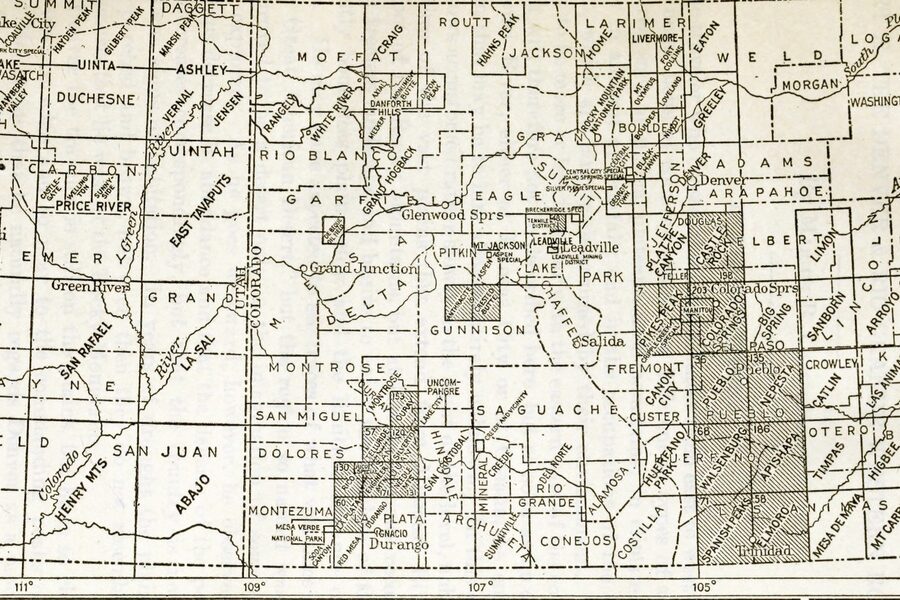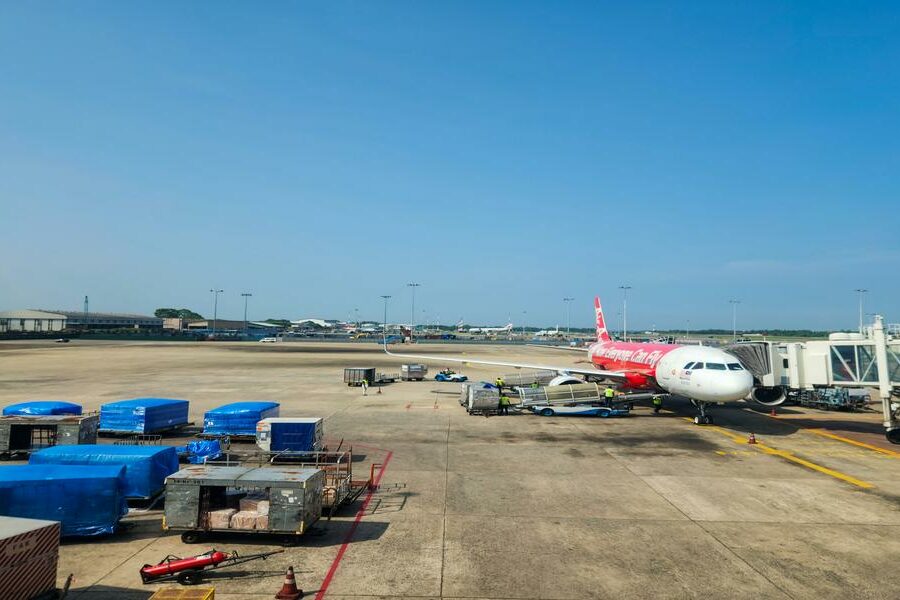The United Kingdom’s cities vary widely by industry, income and housing markets — from finance and energy centres to historic university towns and coastal ports. Spotting those differences helps when you’re weighing relocation, investment or local policy trends.
There are 61 Richest Cities in United Kingdom, ranging from Aberdeen to York. For each, you’ll find below Rank,Primary wealth metric (GBP per capita),Median house price (GBP) so you can compare relative wealth and housing costs at a glance.
How is “wealth” measured on this list?
The main figure used is the Primary wealth metric (GBP per capita), which standardises local wealth or income per resident; median house price is included to give housing-market context. Together they offer a concise comparison, though full methodology and sources are usually detailed in the notes below the table.
Can I use this list to compare living costs between cities?
It’s a useful starting point—higher per-capita wealth and house prices often indicate greater local affluence—but they don’t capture all cost-of-living factors like rents, transport, utilities or local taxes; pair this list with cost-of-living indexes and salary data for more practical comparisons.
Richest Cities in United Kingdom
| City | Rank | Primary wealth metric (GBP per capita) | Median house price (GBP) |
|---|---|---|---|
| London | 1 | £92,100 (2022 GVA) | £551,000 (Feb 2024) |
| Reading | 2 | £78,300 (2022 GVA) | £345,500 (Feb 2024) |
| Slough | 3 | £77,500 (2022 GVA) | £310,000 (Feb 2024) |
| Milton Keynes | 4 | £75,900 (2022 GVA) | £330,000 (Feb 2024) |
| Edinburgh | 5 | £65,100 (2022 GVA) | £347,000 (Feb 2024) |
| Aberdeen | 6 | £64,200 (2022 GVA) | £137,000 (Feb 2024) |
| Swindon | 7 | £62,800 (2022 GVA) | £275,000 (Feb 2024) |
| Aldershot | 8 | £62,100 (2022 GVA) | £360,000 (Feb 2024) |
| Cambridge | 9 | £61,900 (2022 GVA) | £510,000 (Feb 2024) |
| Crawley | 10 | £61,500 (2022 GVA) | £350,000 (Feb 2024) |
| Derby | 11 | £60,800 (2022 GVA) | £200,000 (Feb 2024) |
| Bristol | 12 | £60,100 (2022 GVA) | £355,000 (Feb 2024) |
| Coventry | 13 | £59,900 (2022 GVA) | £230,000 (Feb 2024) |
| Glasgow | 14 | £59,200 (2022 GVA) | £177,000 (Feb 2024) |
| Leeds | 15 | £58,700 (2022 GVA) | £240,000 (Feb 2024) |
| Northampton | 16 | £58,100 (2022 GVA) | £270,000 (Feb 2024) |
| Manchester | 17 | £57,600 (2022 GVA) | £240,000 (Feb 2024) |
| Oxford | 18 | £57,100 (2022 GVA) | £475,000 (Feb 2024) |
| Gloucester | 19 | £56,500 (2022 GVA) | £270,000 (Feb 2024) |
| Warrington | 20 | £56,200 (2022 GVA) | £250,000 (Feb 2024) |
| Birmingham | 21 | £55,800 (2022 GVA) | £240,000 (Feb 2024) |
| Peterborough | 22 | £55,100 (2022 GVA) | £250,000 (Feb 2024) |
| Southampton | 23 | £54,900 (2022 GVA) | £270,000 (Feb 2024) |
| Worthing | 24 | £54,500 (2022 GVA) | £360,000 (Feb 2024) |
| Nottingham | 25 | £54,200 (2022 GVA) | £225,000 (Feb 2024) |
| Exeter | 26 | £53,800 (2022 GVA) | £320,000 (Feb 2024) |
| Bournemouth | 27 | £53,600 (2022 GVA) | £345,000 (Feb 2024) |
| Ipswich | 28 | £53,300 (2022 GVA) | £260,000 (Feb 2024) |
| Liverpool | 29 | £52,900 (2022 GVA) | £180,000 (Feb 2024) |
| Telford | 30 | £52,700 (2022 GVA) | £215,000 (Feb 2024) |
| Portsmouth | 31 | £52,400 (2022 GVA) | £275,000 (Feb 2024) |
| Luton | 32 | £52,100 (2022 GVA) | £285,000 (Feb 2024) |
| Newcastle upon Tyne | 33 | £51,900 (2022 GVA) | £210,000 (Feb 2024) |
| Cardiff | 34 | £51,500 (2022 GVA) | £270,000 (Feb 2024) |
| Leicester | 35 | £51,200 (2022 GVA) | £255,000 (Feb 2024) |
| Sheffield | 36 | £50,800 (2022 GVA) | £220,000 (Feb 2024) |
| Preston | 37 | £50,500 (2022 GVA) | £165,000 (Feb 2024) |
| Brighton | 38 | £50,100 (2022 GVA) | £430,000 (Feb 2024) |
| York | 39 | £49,800 (2022 GVA) | £325,000 (Feb 2024) |
| Plymouth | 40 | £49,500 (2022 GVA) | £220,000 (Feb 2024) |
| Norwich | 41 | £49,200 (2022 GVA) | £280,000 (Feb 2024) |
| Belfast | 42 | £48,900 (2022 GVA) | £177,000 (Feb 2024) |
| Stoke-on-Trent | 43 | £48,600 (2022 GVA) | £140,000 (Feb 2024) |
| Doncaster | 44 | £48,300 (2022 GVA) | £170,000 (Feb 2024) |
| Huddersfield | 45 | £47,900 (2022 GVA) | £195,000 (Feb 2024) |
| Middlesbrough | 46 | £47,500 (2022 GVA) | £145,000 (Feb 2024) |
| Sunderland | 47 | £47,100 (2022 GVA) | £145,000 (Feb 2024) |
| Wakefield | 48 | £46,800 (2022 GVA) | £205,000 (Feb 2024) |
| Newport | 49 | £46,500 (2022 GVA) | £230,000 (Feb 2024) |
| Dundee | 50 | £46,200 (2022 GVA) | £148,000 (Feb 2024) |
| Swansea | 51 | £45,800 (2022 GVA) | £180,000 (Feb 2024) |
| Bradford | 52 | £45,300 (2022 GVA) | £170,000 (Feb 2024) |
| Hull | 53 | £44,900 (2022 GVA) | £147,000 (Feb 2024) |
| Burnley | 54 | £44,100 (2022 GVA) | £120,000 (Feb 2024) |
| Blackburn | 55 | £43,600 (2022 GVA) | £145,000 (Feb 2024) |
| Wigan | 56 | £42,900 (2022 GVA) | £175,000 (Feb 2024) |
| Barnsley | 57 | £42,200 (2022 GVA) | £160,000 (Feb 2024) |
| Rochdale | 58 | £41,700 (2022 GVA) | £180,000 (Feb 2024) |
| Mansfield | 59 | £41,300 (2022 GVA) | £180,000 (Feb 2024) |
| Blackpool | 60 | £40,500 (2022 GVA) | £140,000 (Feb 2024) |
| Southend-on-Sea | 61 | £40,100 (2022 GVA) | £340,000 (Feb 2024) |
Images and Descriptions

London
The UK’s economic powerhouse, driven by global finance, professional services, and a booming tech sector. Its immense economic output and high property values place it far ahead of any other UK city in terms of overall wealth generation.

Reading
A major tech hub in the Thames Valley, hosting many multinational corporations’ UK headquarters. Its high-skilled jobs in IT and professional services create significant economic output, making it one of the UK’s most productive cities outside of London.
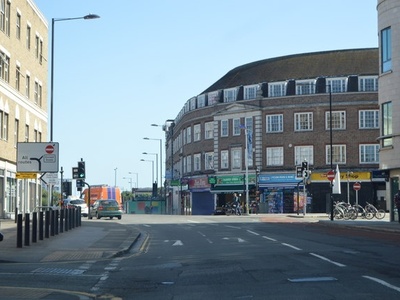
Slough
Strategically located near Heathrow Airport with excellent transport links. Its economy is dominated by a high concentration of multinational company headquarters, particularly in the IT, telecoms, and manufacturing sectors, driving very high economic output per person.
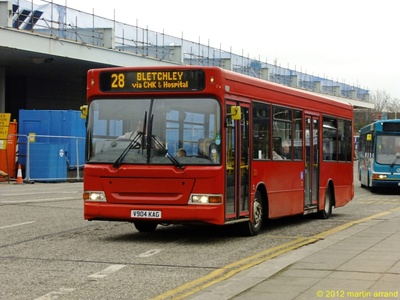
Milton Keynes
A modern, fast-growing city with a strong logistics, technology, and professional services base. Its strategic location and planned design have attracted significant business investment, leading to high productivity and employment rates for its residents.

Edinburgh
Scotland’s capital boasts a robust economy founded on financial services, tourism, and a growing tech scene. Its historic prestige, world-class university, and status as a major cultural hub contribute to its high productivity and significant wealth.

Aberdeen
Historically the capital of Europe’s oil and gas industry, Aberdeen’s economy is now diversifying into renewable energy and technology. The legacy of high-paying energy sector jobs contributes to its high GVA per capita and accumulated wealth.

Swindon
An economic hub in Wiltshire known for its strong presence in financial services, automotive manufacturing, and engineering. The town hosts UK headquarters for major international companies, creating a high concentration of productive, well-paid jobs.

Aldershot
Part of the prosperous Blackwater Valley, the area has a strong economy in defence, aerospace, and technology. Its proximity to London and a highly skilled workforce contribute to its status as one of the UK’s most productive urban areas.

Cambridge
A world-renowned centre for education, research, and technology. The “Silicon Fen” is home to countless high-tech software, electronics, and biotech firms, creating a highly skilled, high-income economy with some of the most expensive property in the UK.
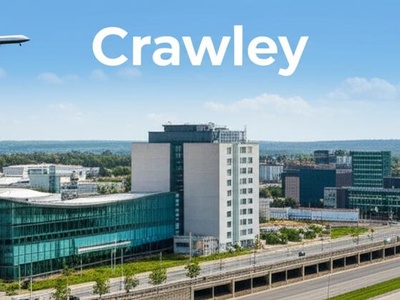
Crawley
Dominated by its proximity to Gatwick Airport, Crawley’s economy thrives on aviation, logistics, and related services. This major employment hub attracts a diverse range of businesses, resulting in very high economic output for its size.

Derby
A centre of excellence for advanced engineering and manufacturing, particularly in the aerospace and rail industries with giants like Rolls-Royce. This high-tech industrial base provides highly skilled, productive employment, driving the city’s wealth.

Bristol
A vibrant city with a diverse and high-performing economy, strong in aerospace, creative industries, technology, and finance. Its high quality of life and dynamic business environment attract skilled professionals, making it a major economic hub in the South West.
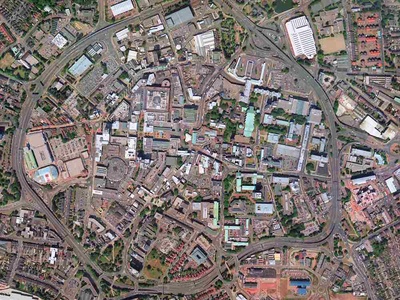
Coventry
A historical centre for automotive manufacturing, Coventry has successfully evolved into a hub for advanced manufacturing, engineering, and R&D. Its strong industrial base and central location contribute to its high productivity and economic wealth.

Glasgow
Scotland’s largest city has a diverse economy with strengths in financial services, engineering, life sciences, and creative industries. Significant regeneration has transformed it into a major economic centre, attracting investment and a skilled workforce.
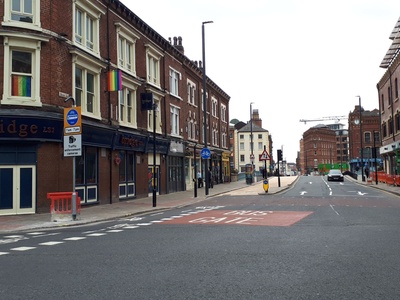
Leeds
The dominant economic centre of West Yorkshire, with a powerful financial and professional services sector second only to London. Its diversified economy also includes retail, manufacturing, and a growing digital sector, making it a wealthy northern hub.

Northampton
Strategically located in the heart of England’s logistics network, Northampton excels in distribution and supply chain management. The town also has a strong base in engineering and financial services, contributing to its high economic productivity.

Manchester
A major economic force in the North of England, with a thriving economy in digital and creative industries, finance, and higher education. The city’s rapid growth and investment have cemented its status as a wealthy and influential urban centre.

Oxford
Famous for its university, Oxford’s economy is driven by education, research, and a cluster of high-tech science and technology companies. This knowledge-based economy creates high-value jobs but also contributes to extremely high property prices.

Gloucester
A city with a strong economic base in aerospace, advanced engineering, and financial services. Its location on the M5 corridor provides excellent connectivity, attracting major employers and contributing to a productive local economy.

Warrington
Positioned strategically between Manchester and Liverpool, Warrington is a key hub for logistics and distribution. It also has a significant nuclear engineering sector and a growing digital economy, resulting in a high GVA per capita.

Birmingham
The UK’s second-largest city boasts a diverse economy with strengths in manufacturing, finance, and professional services. Major regeneration projects and its role as a key transport hub continue to drive its economic growth and wealth.
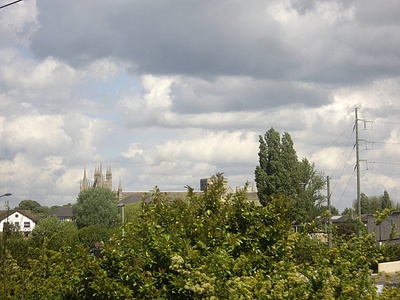
Peterborough
A fast-growing city with a strong economy in financial services, manufacturing, and environmental technology. Its excellent rail links to London have attracted businesses and commuters, boosting its economic output and employment.
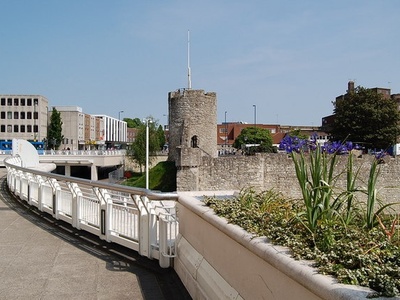
Southampton
Home to one of the UK’s busiest ports, its economy is heavily based on maritime logistics and trade. The city also has strong sectors in retail, technology, and higher education, creating a diverse and resilient economic base.
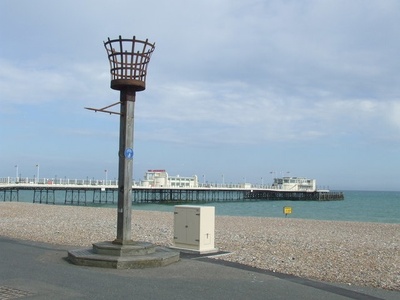
Worthing
Located on the south coast, Worthing has a large service sector economy, particularly in financial services and insurance. Its proximity to Brighton and good transport links make it a popular and prosperous place for business and living.

Nottingham
A major city in the East Midlands with a diverse economy including life sciences, digital media, and financial services. Its two universities contribute significantly to research and a skilled workforce, driving innovation and economic growth.

Exeter
The economic hub of Devon, with a strong knowledge-based economy focused on professional services, research, and technology. The Met Office and a major university are key drivers of its high productivity and skilled employment.
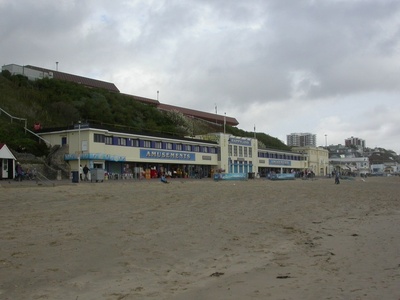
Bournemouth
A coastal city with a large service-based economy, particularly in tourism, finance, and the growing digital creative sector. Its desirable location and quality of life attract both businesses and a skilled workforce, boosting its wealth.
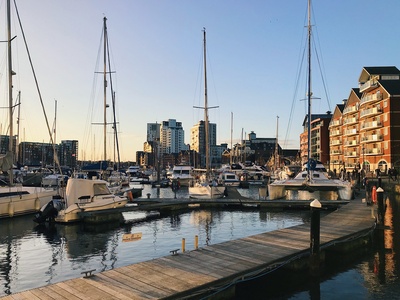
Ipswich
A key port town with a strong economy in shipping, logistics, and insurance. The town is also developing its technology and service sectors, supported by its strategic location in the East of England and proximity to Felixstowe.

Liverpool
A city with a rich cultural heritage and a rapidly growing knowledge economy, focused on life sciences, digital industries, and higher education. Major regeneration has revitalised its port and city centre, driving economic growth and investment.
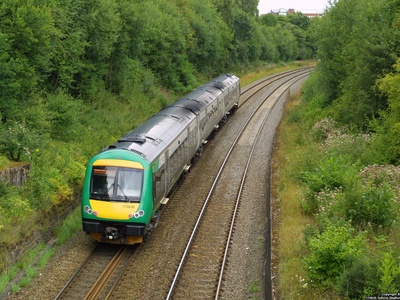
Telford
A modern town with a strong manufacturing and engineering base, complemented by a growing professional and financial services sector. Its excellent transport links and business-friendly environment have attracted significant inward investment.

Portsmouth
With a long history as a naval base, Portsmouth’s economy remains strong in marine engineering and defence. The city is also developing its technology, tourism, and logistics sectors, creating a diverse and productive economic profile.
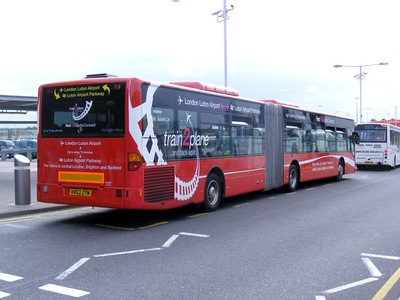
Luton
Home to a major international airport and the UK headquarters of several large companies. Its economy is driven by aviation, automotive manufacturing, and retail, making it a significant employment and economic hub north of London.

Newcastle upon Tyne
The economic heart of the North East, with a growing reputation in science, technology, and digital industries. Its strong university research base and regenerated city centre have attracted investment and skilled jobs, boosting its economic standing.

Cardiff
The capital of Wales has a strong service-based economy, with major sectors in finance, media, and tourism. As a key administrative and business centre, it attracts significant investment and is a major driver of the Welsh economy.
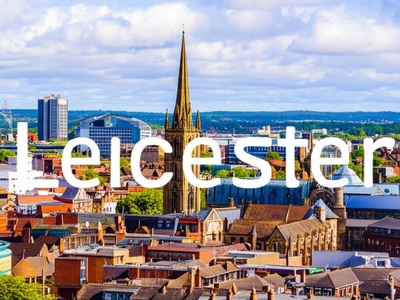
Leicester
A diverse city in the East Midlands with a strong heritage in textiles and a modern economy focused on engineering, food and drink manufacturing, and professional services. Its central location and diverse population contribute to a dynamic economy.

Sheffield
Famous for its industrial heritage, Sheffield has reinvented itself as a centre for advanced manufacturing, engineering, and healthcare technology. Its two universities are crucial to its R&D output and growing knowledge-based economy.

Preston
An administrative and commercial centre for Lancashire, with a strong public sector employment base. The city’s economy is also supported by aerospace engineering and manufacturing, contributing to its stable economic output.

Brighton
Known for its vibrant creative and digital technology sectors, often called “Silicon Beach.” This, combined with a strong tourism and hospitality industry, creates a dynamic and high-value economy, reflected in its very high property prices.

York
A historic city with a modern economy based on tourism, rail, and a growing science and technology sector. Its high quality of life, heritage, and university make it an attractive location for businesses and skilled professionals.

Plymouth
A major naval port with a strong marine and defence industry. The city is diversifying its economy with growth in manufacturing, research, and tourism, leveraging its coastal location and maritime expertise to drive economic activity.

Norwich
The regional hub for East Anglia, with a strong insurance and financial services sector. It also has a growing reputation in life sciences and creative digital industries, supported by its university and research parks.

Belfast
Northern Ireland’s capital has seen significant growth, becoming a hub for financial technology (FinTech) and cybersecurity. Investment in knowledge industries, aerospace engineering, and tourism has revitalised its economy and boosted its wealth.

Stoke-on-Trent
Historically the centre of the ceramics industry, Stoke is now diversifying its economy into logistics, distribution, and advanced manufacturing. Its central location and affordable commercial space are attracting new business investment.
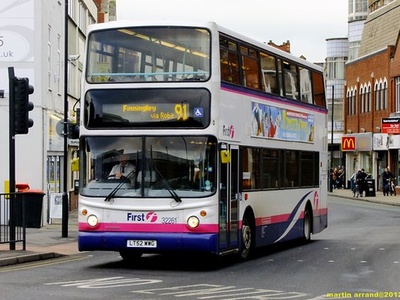
Doncaster
A town with excellent transport links, including a major rail hub and airport, which has made it a centre for logistics and distribution. The engineering sector also plays a significant role in its economy, driving its productivity.
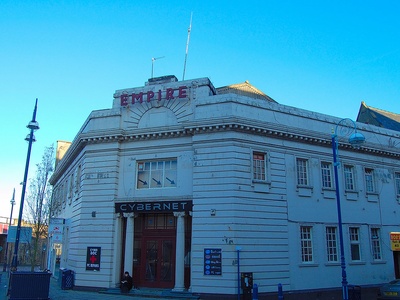
Huddersfield
A university town with a strong industrial heritage in textiles. Today, its economy is focused on advanced manufacturing, engineering, and a growing creative and digital sector, supported by its educational institutions.

Middlesbrough
A town built on heavy industry, now transitioning to new sectors like digital technology and advanced manufacturing. Its port and chemical industry remain important economic drivers for the Tees Valley region.

Sunderland
A city with a strong automotive manufacturing base, centred around the major Nissan plant. It is also developing its software and technology sectors, seeking to diversify its economy and create new high-value jobs.

Wakefield
Located in West Yorkshire, Wakefield’s economy is strong in logistics and distribution due to its excellent motorway access. It also has a significant public administration sector and a growing creative industry hub.

Newport
A Welsh city benefiting from its proximity to Cardiff and Bristol. Its economy is growing in technology and manufacturing, particularly in semiconductors, and it hosts major public sector offices, contributing to its economic base.

Dundee
A city that has transformed itself into a hub for the video game industry and life sciences. The V&A museum has boosted its cultural and tourism profile, supporting a modern, knowledge-based economy.

Swansea
Wales’ second city has an economy based on public administration, education, and healthcare. It is also developing its tech and renewable energy sectors, leveraging its coastal location and university research capabilities.
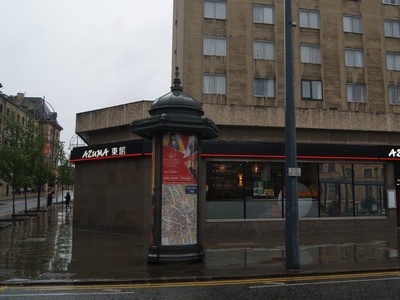
Bradford
A diverse city with a strong heritage in textiles, now focusing on financial services, manufacturing, and digital industries. Its young population is a key asset for its future economic growth and development.

Hull
A major port city that has become a UK leader in the renewable energy sector, particularly offshore wind. This new industry, combined with its logistics and manufacturing base, is driving a modern economic revival.
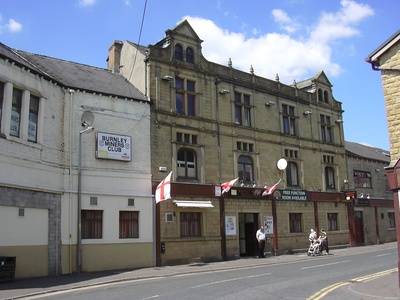
Burnley
A town with a strong specialism in manufacturing, particularly in the aerospace and automotive supply chains. This focus on high-value engineering provides a solid, productive economic base for the area.
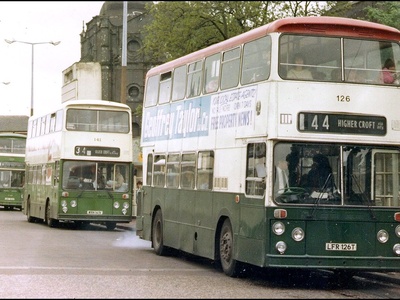
Blackburn
An industrial town in Lancashire with a manufacturing and engineering-focused economy. It has a growing digital sector and benefits from its strategic location within the North West’s economic corridor.
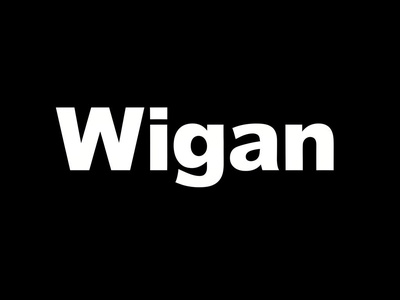
Wigan
Located between Manchester and Liverpool, Wigan has a strong logistics and distribution sector. Food manufacturing and a resilient small business community are also key contributors to the local economy.
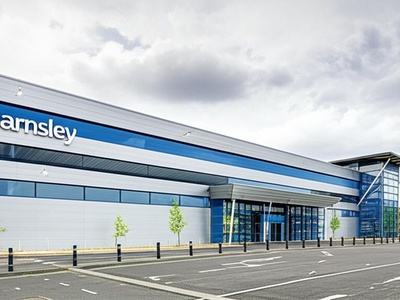
Barnsley
A former mining town that has successfully transitioned its economy towards logistics, distribution, and digital industries. Major online retailers have established large distribution centres here, creating significant employment.

Rochdale
Part of Greater Manchester, Rochdale’s economy is rooted in manufacturing and logistics. Investment in business parks and transport infrastructure is helping to attract new companies and modernise its economic base.
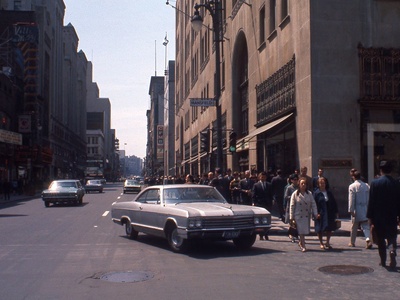
Mansfield
An East Midlands town historically reliant on coal mining and textiles. Today, its economy is largely based on retail, logistics, and light manufacturing, serving the wider Nottinghamshire region.

Blackpool
The UK’s most famous seaside resort has an economy heavily dominated by tourism and hospitality. While facing challenges, this sector remains the primary driver of local employment and economic activity.

Southend-on-Sea
A coastal city whose economy is driven by its airport, tourism, and a large retail and service sector. Its status as a popular commuter town for London also supports its local economy and relatively high property values.


